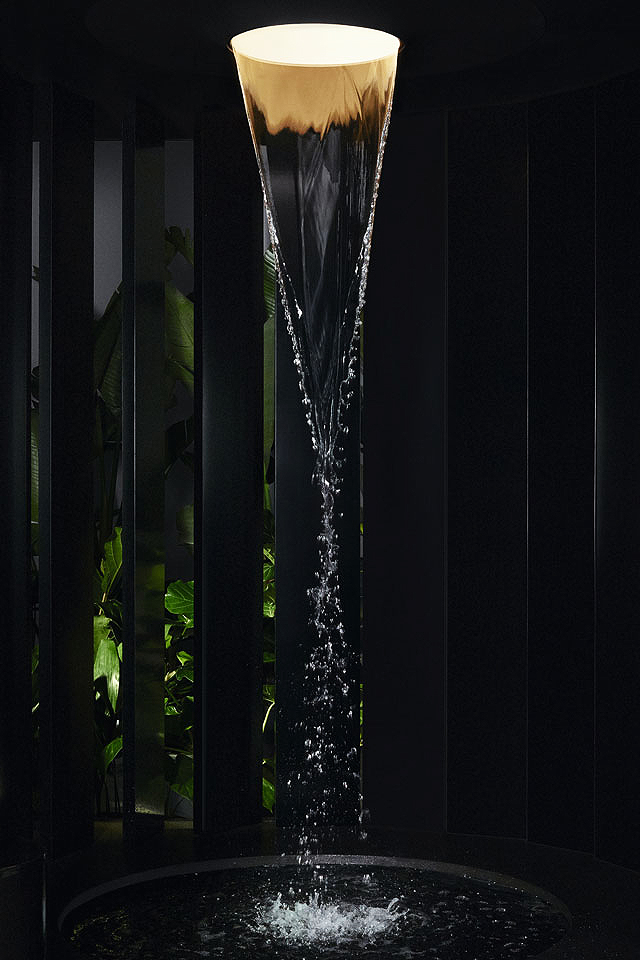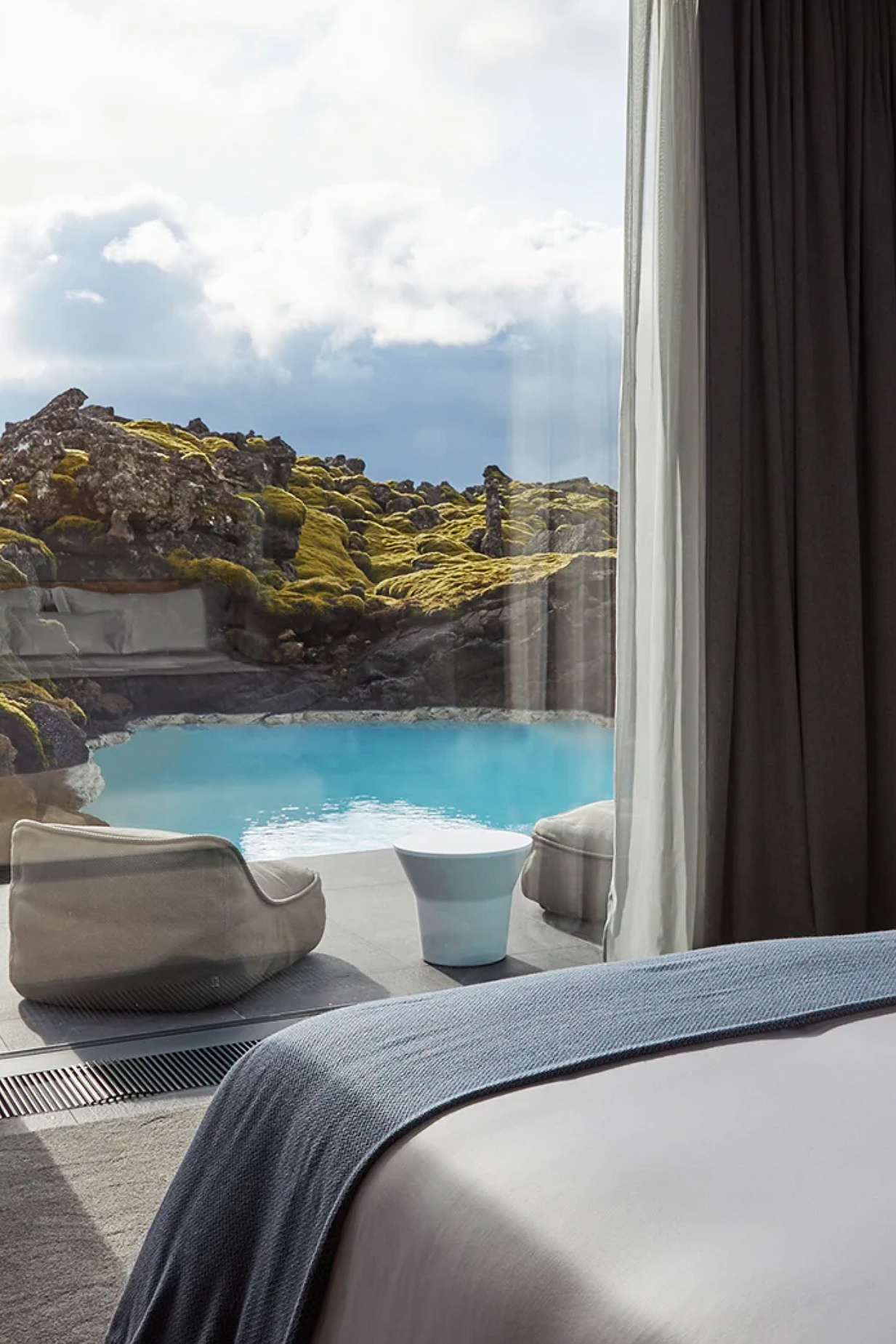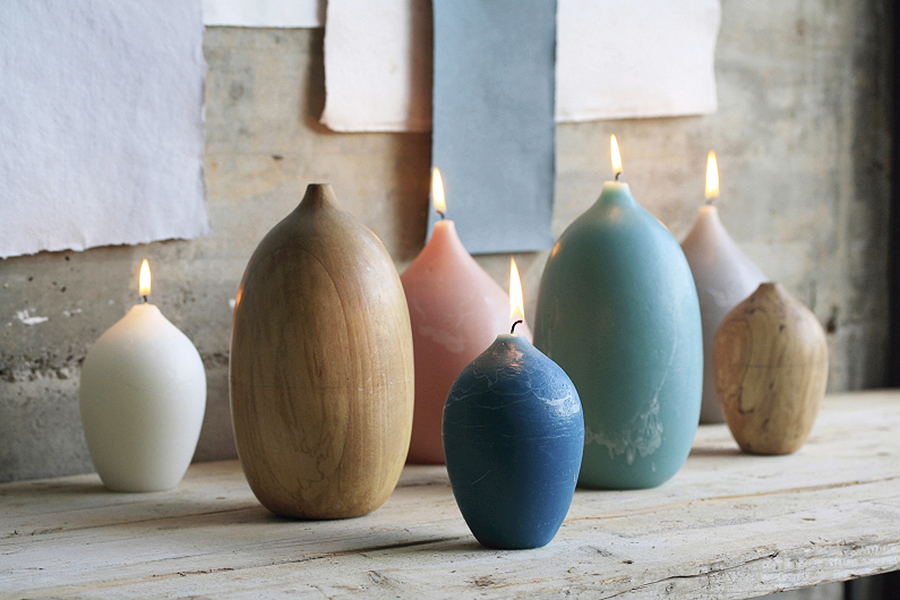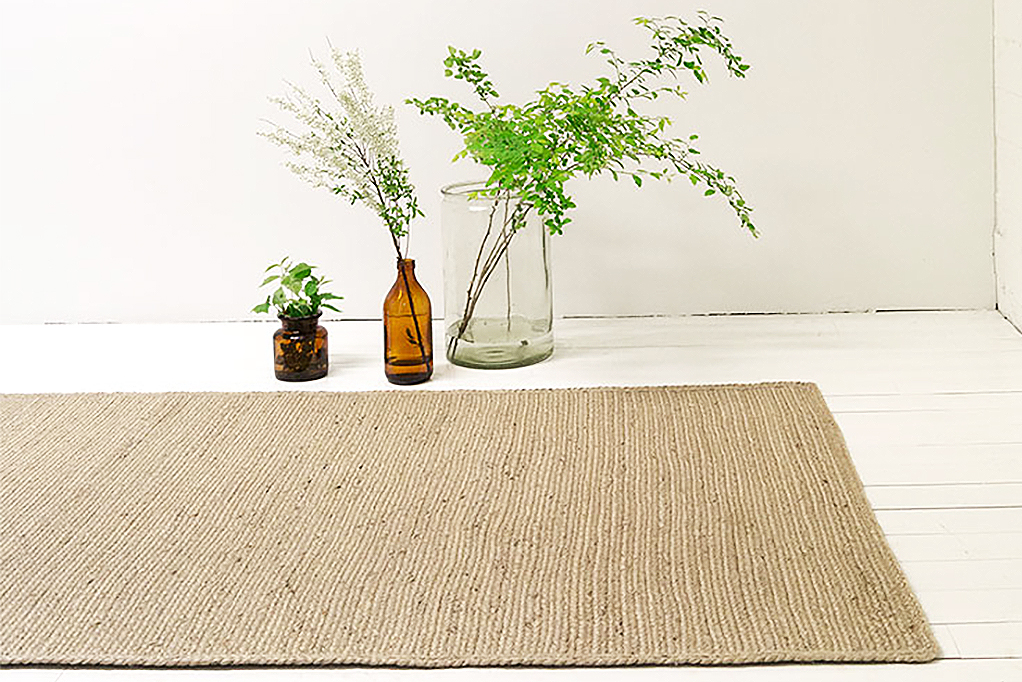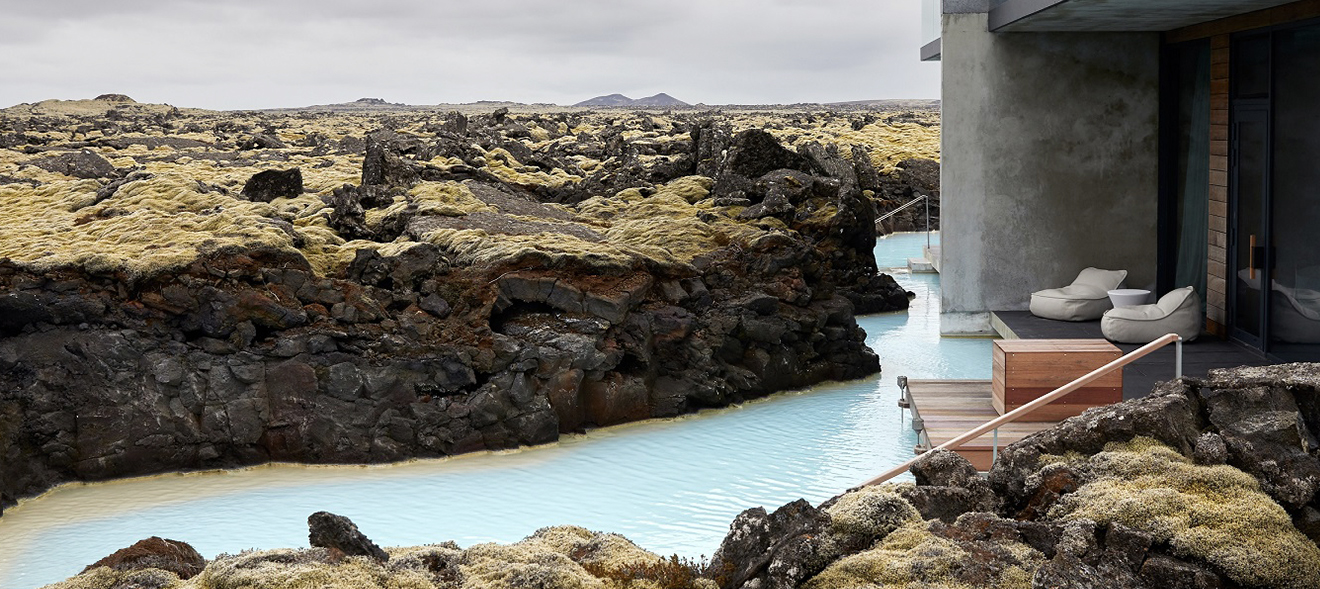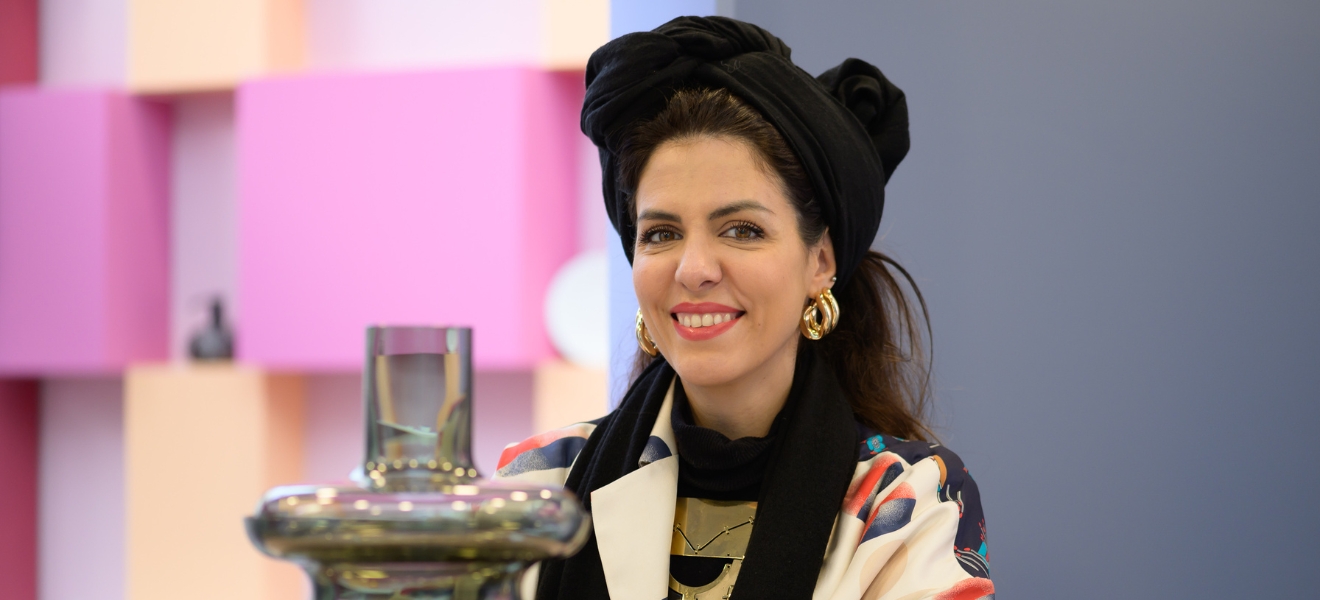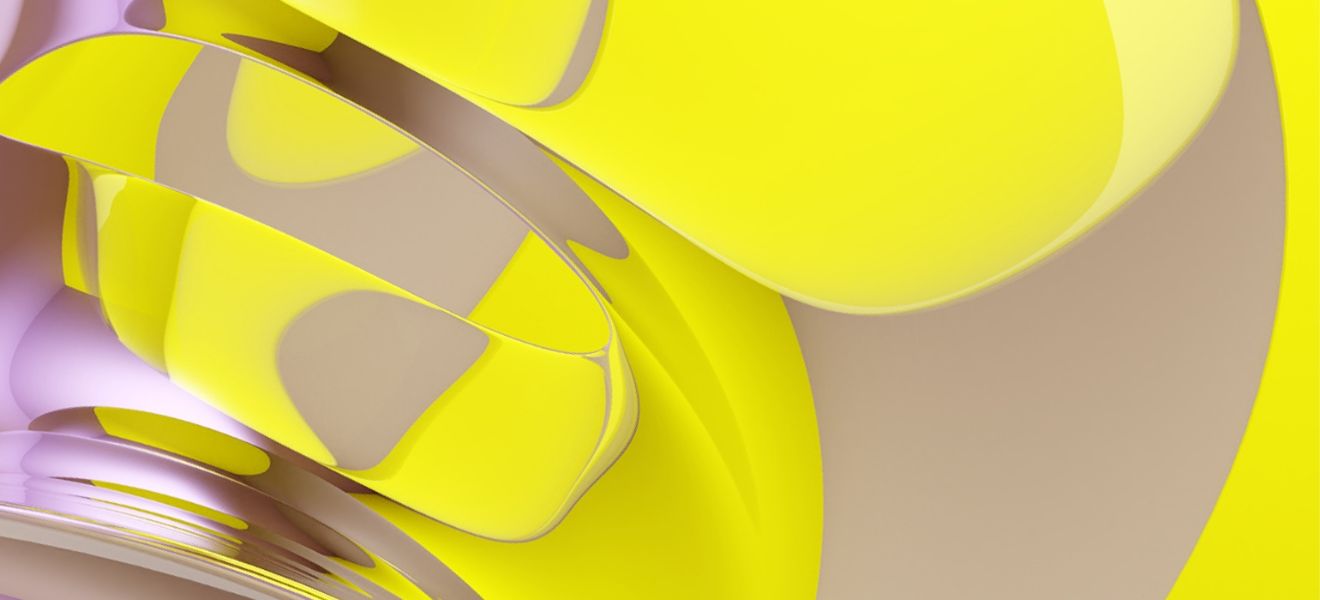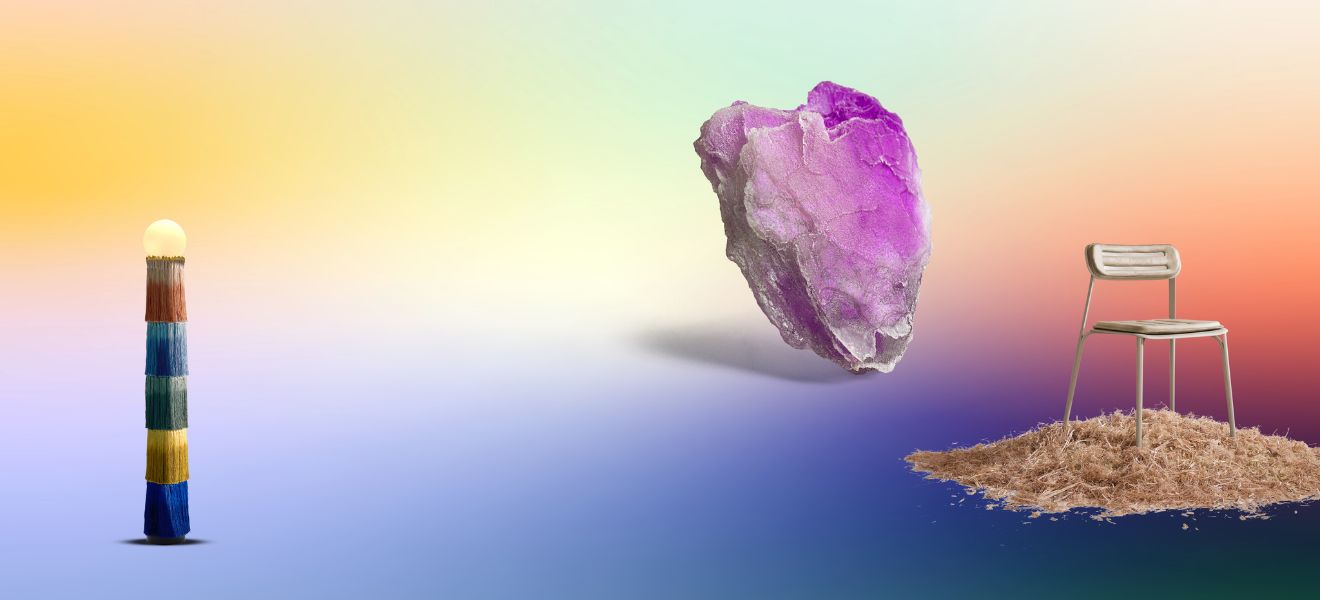It is remarkable how radically our society is changing. Whereas for many years the focus has been on increasing speed and digitisation, things have shifted and the desire for self-discovery has now become an important theme. Instead of constantly chasing after a newer, faster and shinier future, more and more people are seeking depth, deceleration and greater closeness to Mother Nature. Other cultures and spirituality can provide valuable guidance in this change of consciousness.
Home as a place of refuge
Higher, further, faster? Not any more! It seems as if this leitmotif has finally passed its sell-by date – at least on a personal level. However, since it’s so difficult to escape from the rapid pace of life at work and in our everyday lives, home often offers our only place of refuge from the spiral of incessant information overload, permanent stress and excessive demands. In addition to cultivating the right personal mindset, we can also use furniture and accessories from far-off lands to help us relax and enjoy life. Materials such as wood, leather, rattan, linen, cork and sisal play a particularly important role in this context as they create an easy, natural charm.
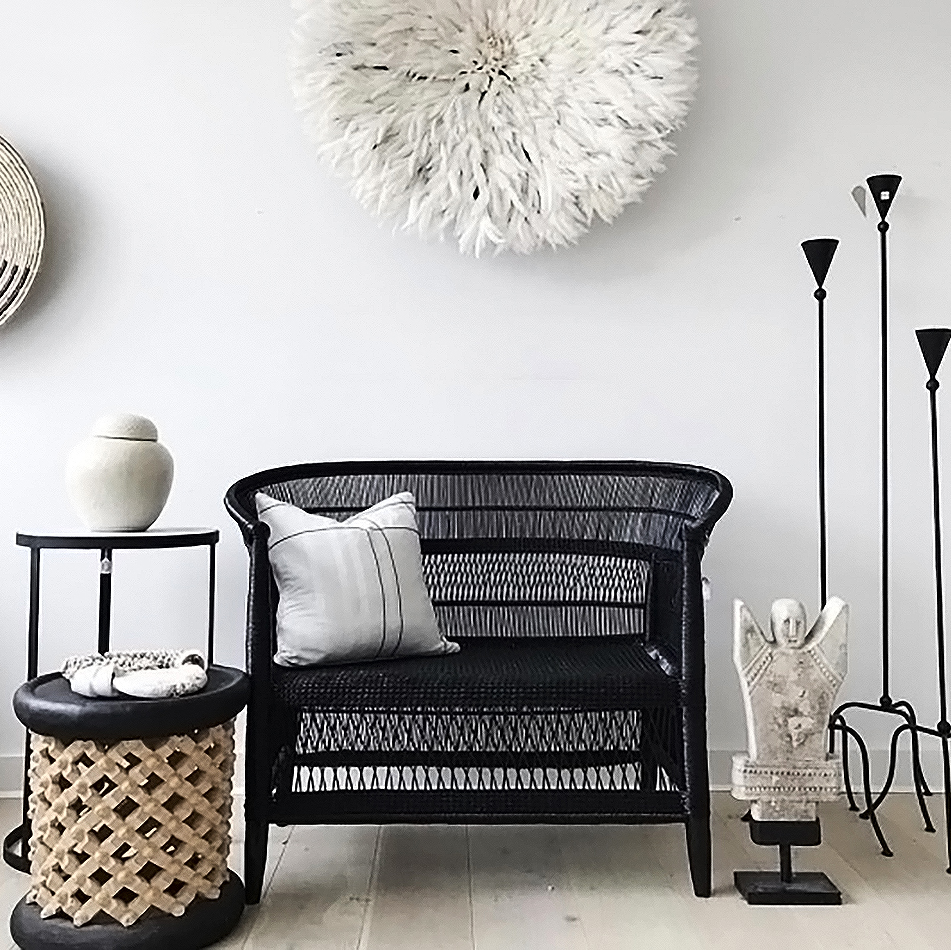
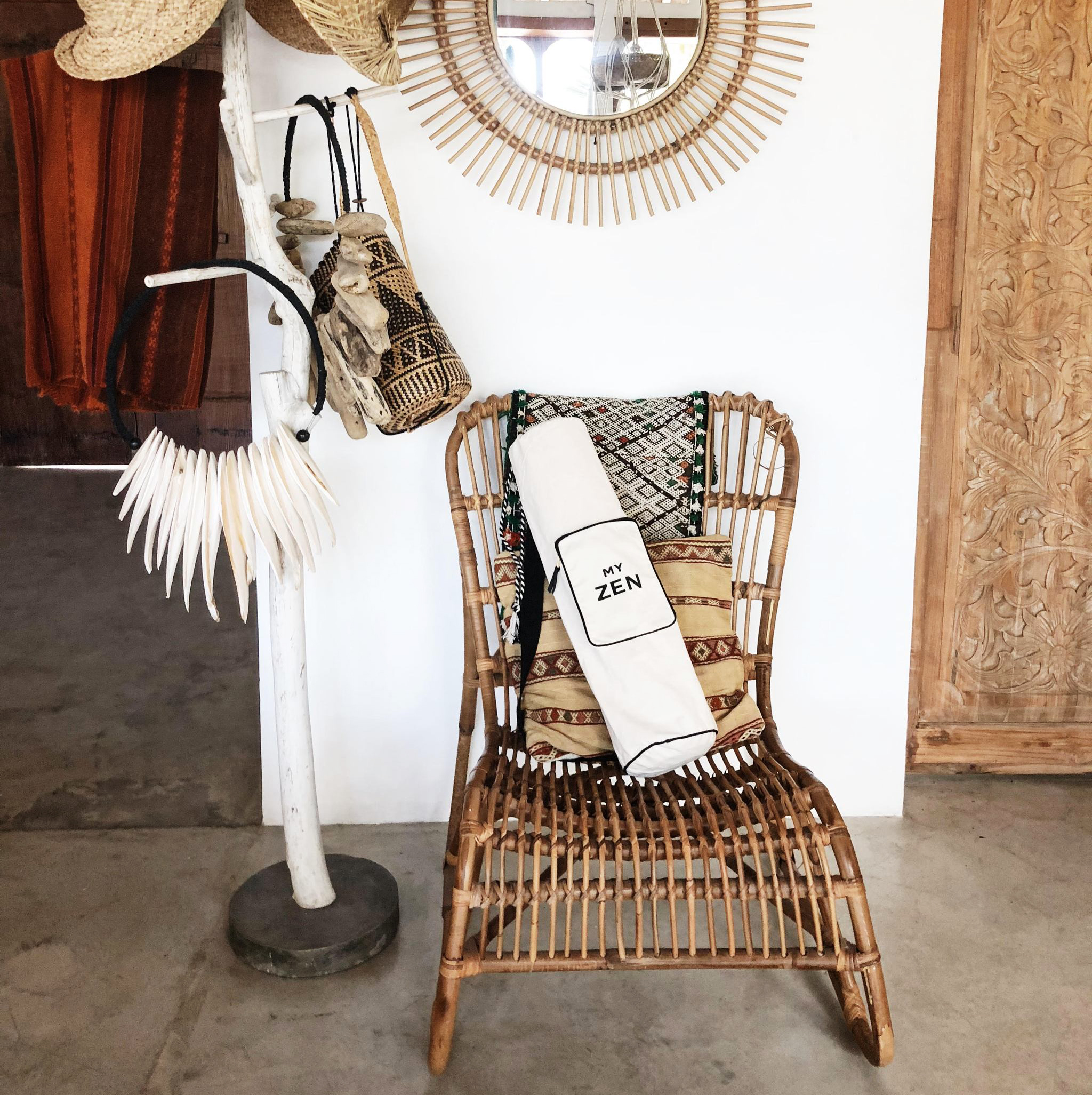
2 Bag by Legami
3 Seat cushion by Kokon
4 Acupressure mat by Accessory Arcade
5 Yoga mat by Corticeira Viking
2 Bag by Legami
3 Seat cushion by Kokon
4 Acupressure mat by Accessory Arcade
5 Yoga mat by Corticeira Viking
Connecting values
As we strive towards deceleration and a greater sense of purpose, spiritual accessories are now becoming almost mainstream items. Many depictions of the Buddha show him making a ‘touching the earth’ gesture, which represents precisely the wisdom that so many people are currently striving to achieve. Traditional masks of indige-nous peoples also denote desired values such as positive energy, inner peace and happiness, which are increasingly being pushed into the background in our hectic society.
Many small companies that originally supported a charitable project or local handicrafts are also benefiting economically from this new awareness trend. For instance, the company Handicraft Products (From the mayan people to you), which was founded in 1986 in the high mountains of Guatemala, now employs several hundred indige-nous people. They manufacture typical local products such as masks, dolls, wooden sculptures and jewellery, which are now ex-ported all over the world.
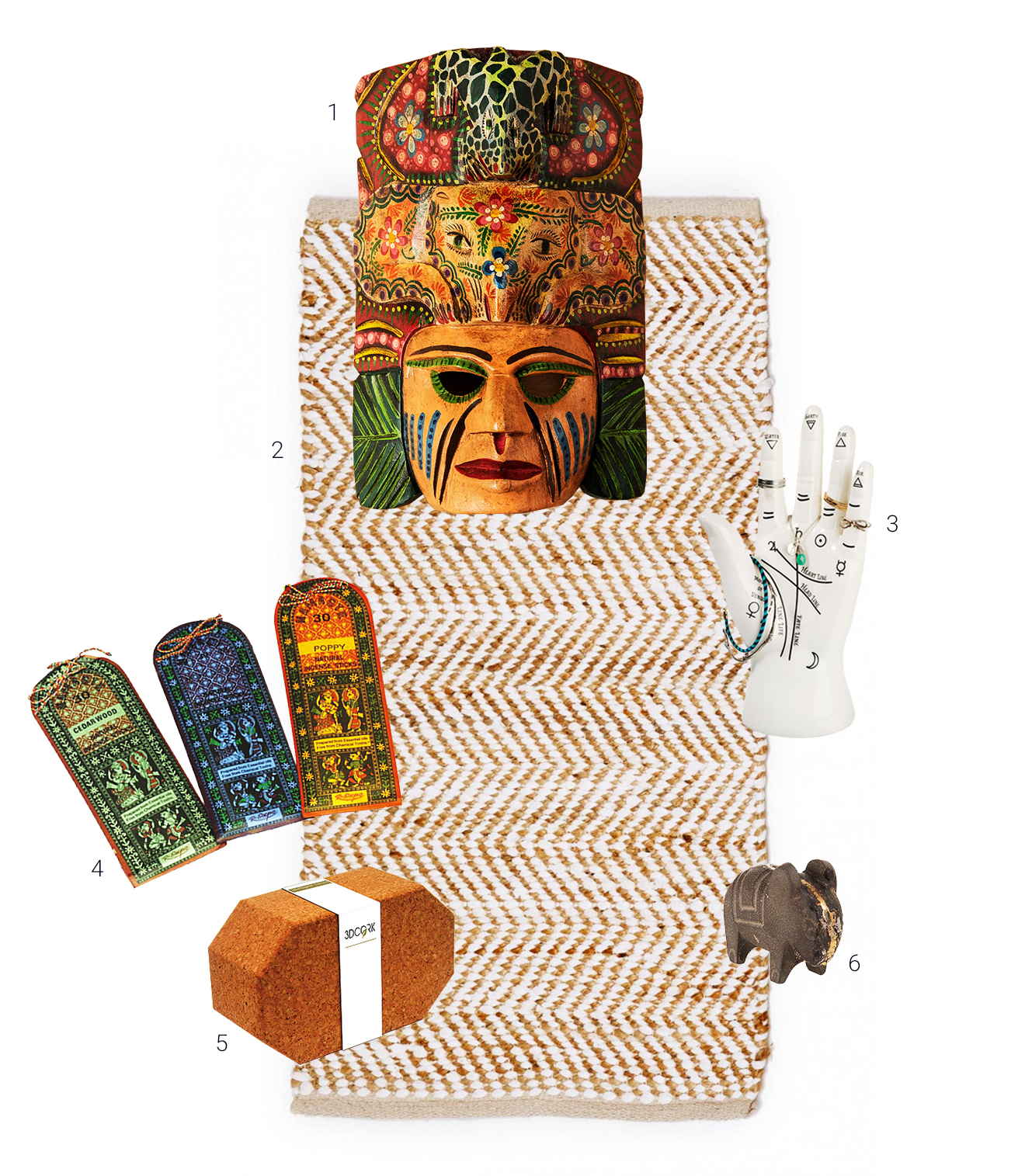
2 Carpet by Riviera Maison
3 Jewellery holder by Bitten
4 Incense sticks by Song of India - R. Expo India
5 Yoga block by 3D Cork
6 Talisman by Sika Design
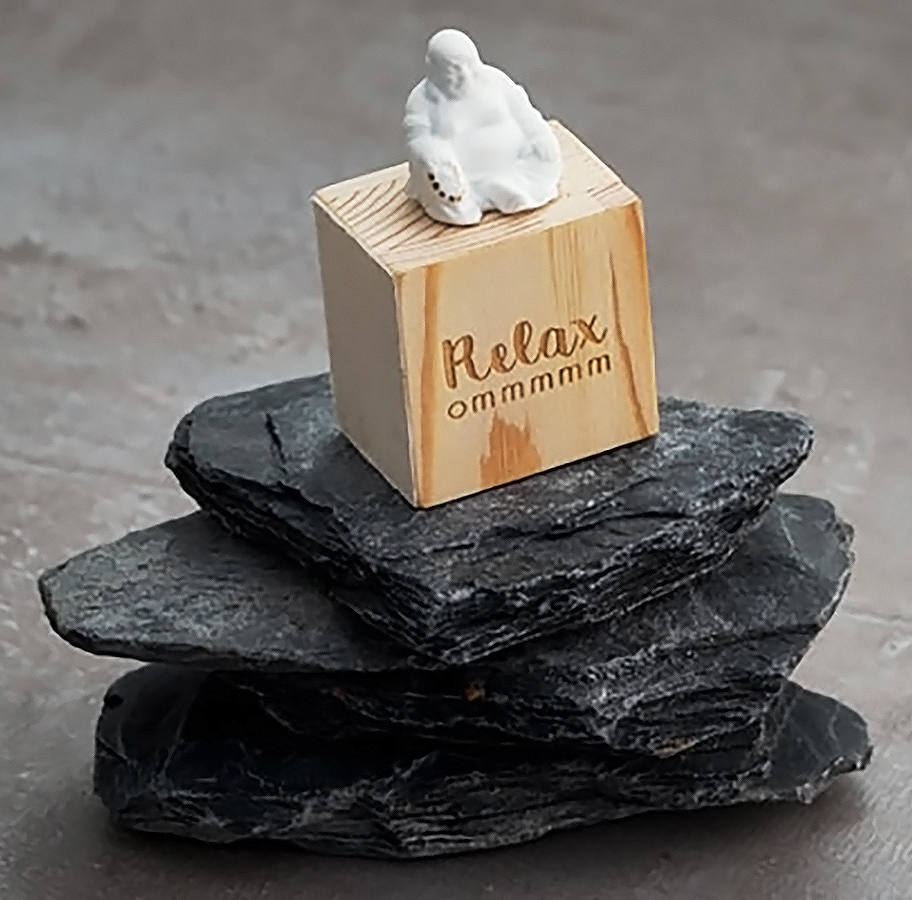
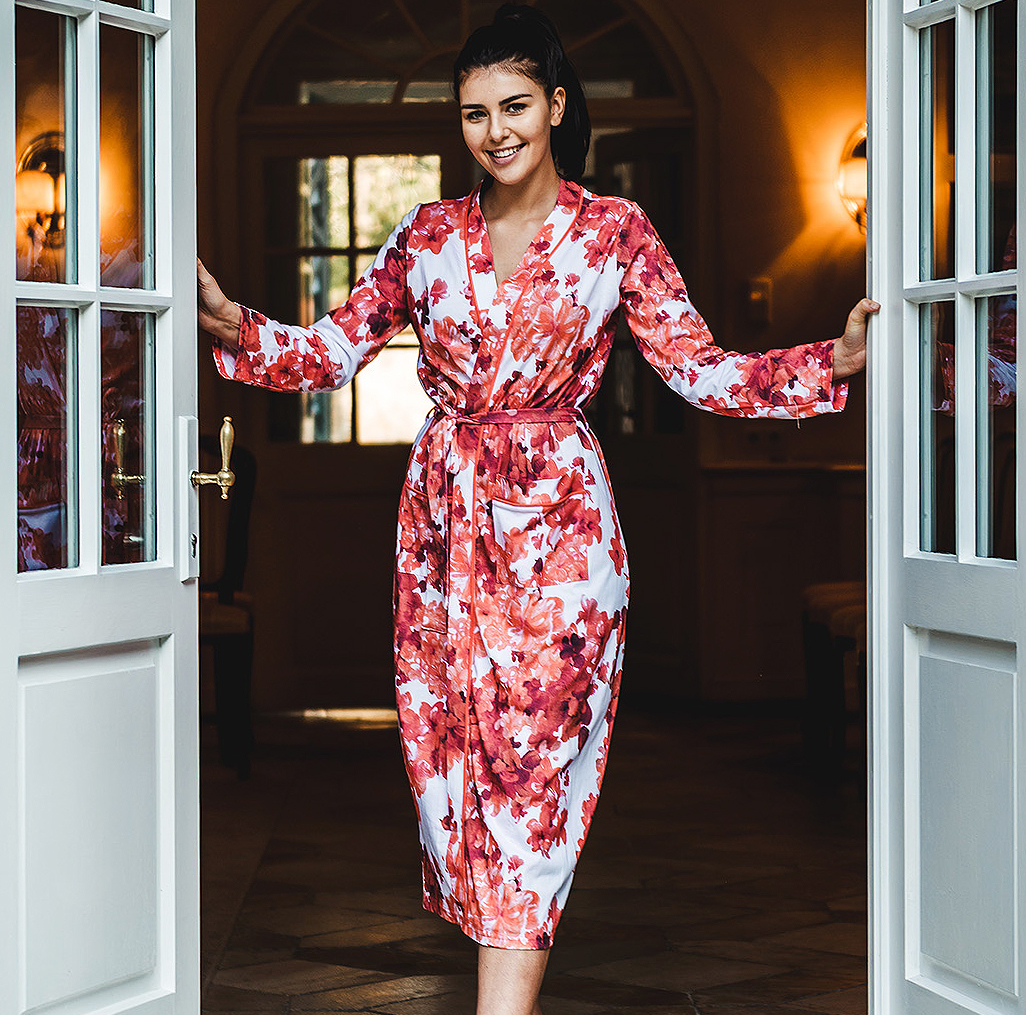
Clothes make the man – and woman
Spirituality has even found its way into today’s fashion world and traditional clothing and accessories from other cultures are making a clear statement. It’s no longer a question of being able to define yourself through a particular ‘off the peg’ fashion label or clothing style. Nowadays, for example, a colourful kimono – preferably handmade under fair trade conditions and from sustainable materials – can attract a lot of attention.
Accessories made from natural materials such as leather and cotton also demonstrate to the outside world a conscious lifestyle choice. Symbolic motifs such as star-shaped earrings or bracelets made from healing quartz crystals can add a touch of subtlety and spirituality to an outfit.
2 Tunic by Hoff-Interieur
3 + 4 Earrings and necklace by iCrush
5 Keyring pendant by Giobagnara
6 Bag by From the Mayan People to You
2 Tunic by Hoff-Interieur
3 + 4 Earrings and necklace by iCrush
5 Keyring pendant by Giobagnara
6 Bag by From the Mayan People to You
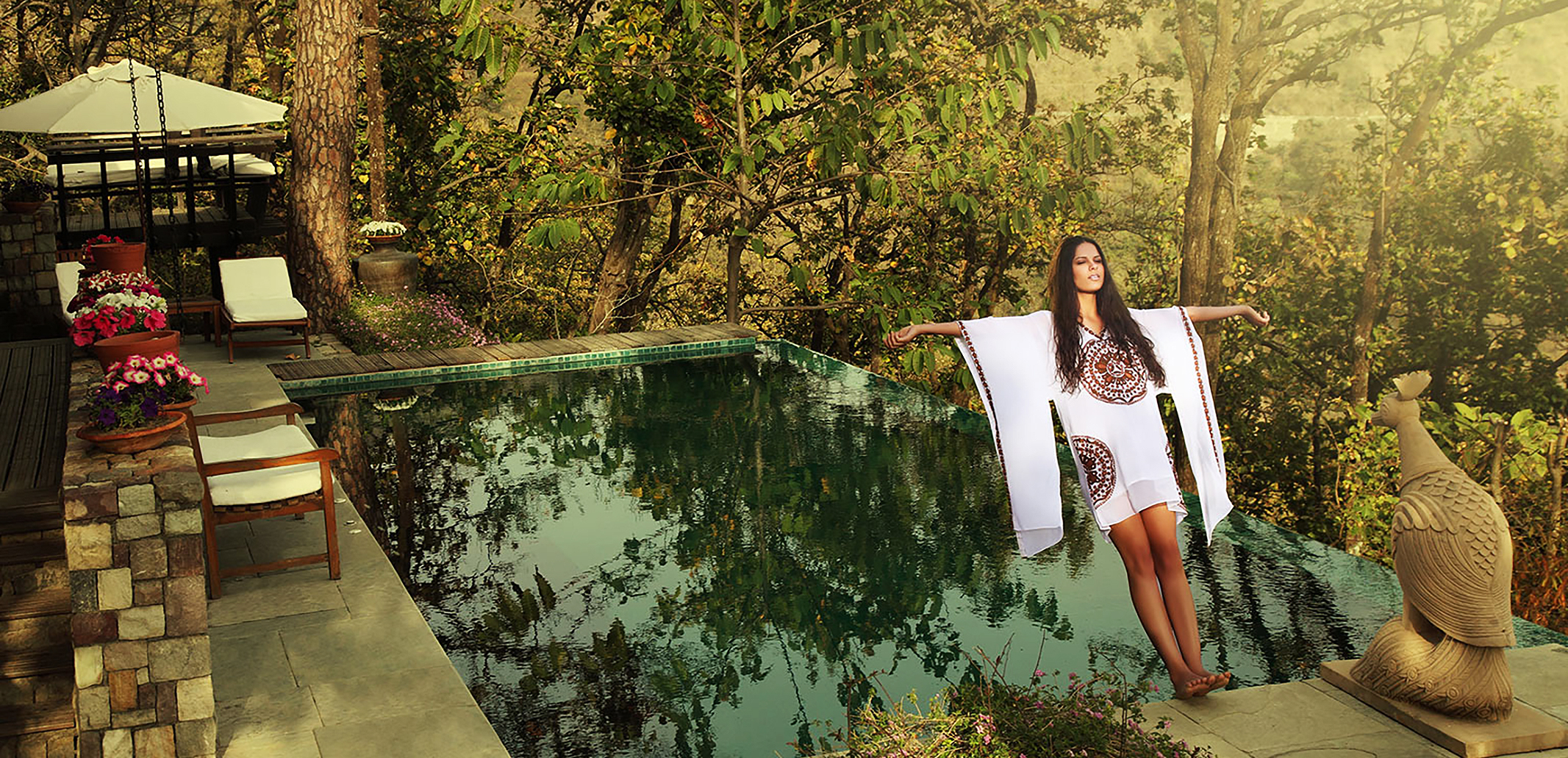
Taking time out
Faced with the constant pressure of time throughout the day and at almost all stages of our lives, more and more people simply want to be able to take time out. Concepts such as ‘work-life balance’ are becoming more and more important, while ‘sabbatical’ and ‘career break’ are among the top search terms on the Internet. A recent XING study on the subject of sabbaticals confirms that more and more employees want to take a break from their job in order to have more time for themselves and to be able to relax. It’s therefore no surprise that spiritual tourism and spiritual activities are becoming increasingly popular. Yoga and Pilates classes are now everywhere, and Ayurveda cures and meditation courses are attracting more and more participants.
But you don’t have to travel to Asia to see how the body and mind can work in harmony. The pragmatic Icelanders are also now tapping into the spiritual world. In an 800-year-old lava field under the Blue Lagoon, part of the Unesco World Heritage Site, they have carved an underground spa area for the five-star hotel “The Retreat”. Guests are attracted not only by the spectacular interior, but above all by the promise of “merging with nature to form a harmonious whole”.
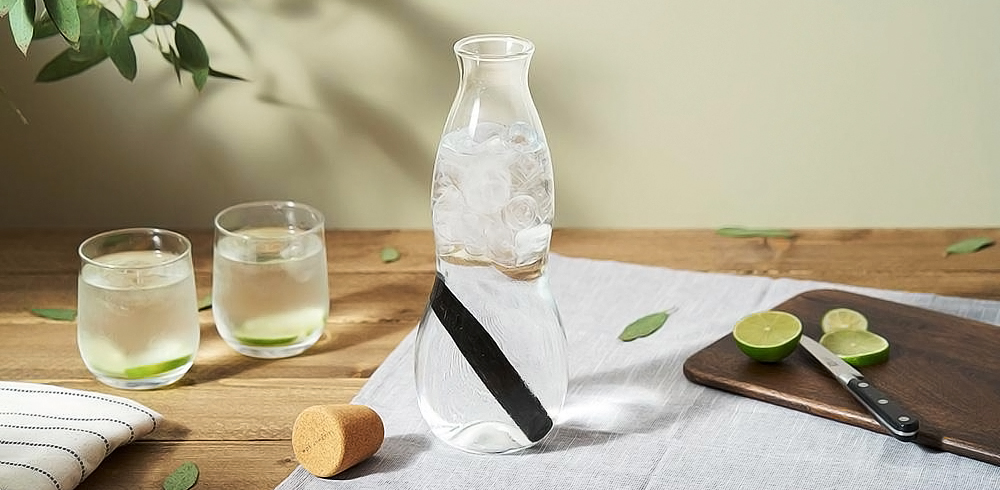
Everyday mindfulness
With just a little effort we can fashion our everyday lives to make them more meaningful. Fragrances, subtle lighting and decorative objects as a counterpoint to our predominantly rational daily routine enhance personal well-being and encourage relaxation.
It also makes sense to think about our consumption. For instance, why do we buy plastic bottles of water and industrially manufactured chocolate bars when tap water from glass carafes with activated carbon filters and vegan wine gums taste every bit as good? Start-ups, in particular, are increasingly focusing on healthy nutrition and sustainability. The Munich-based company air up, for example, has developed a drinks bottle system that adds flavour to water solely with the use of aroma pads.
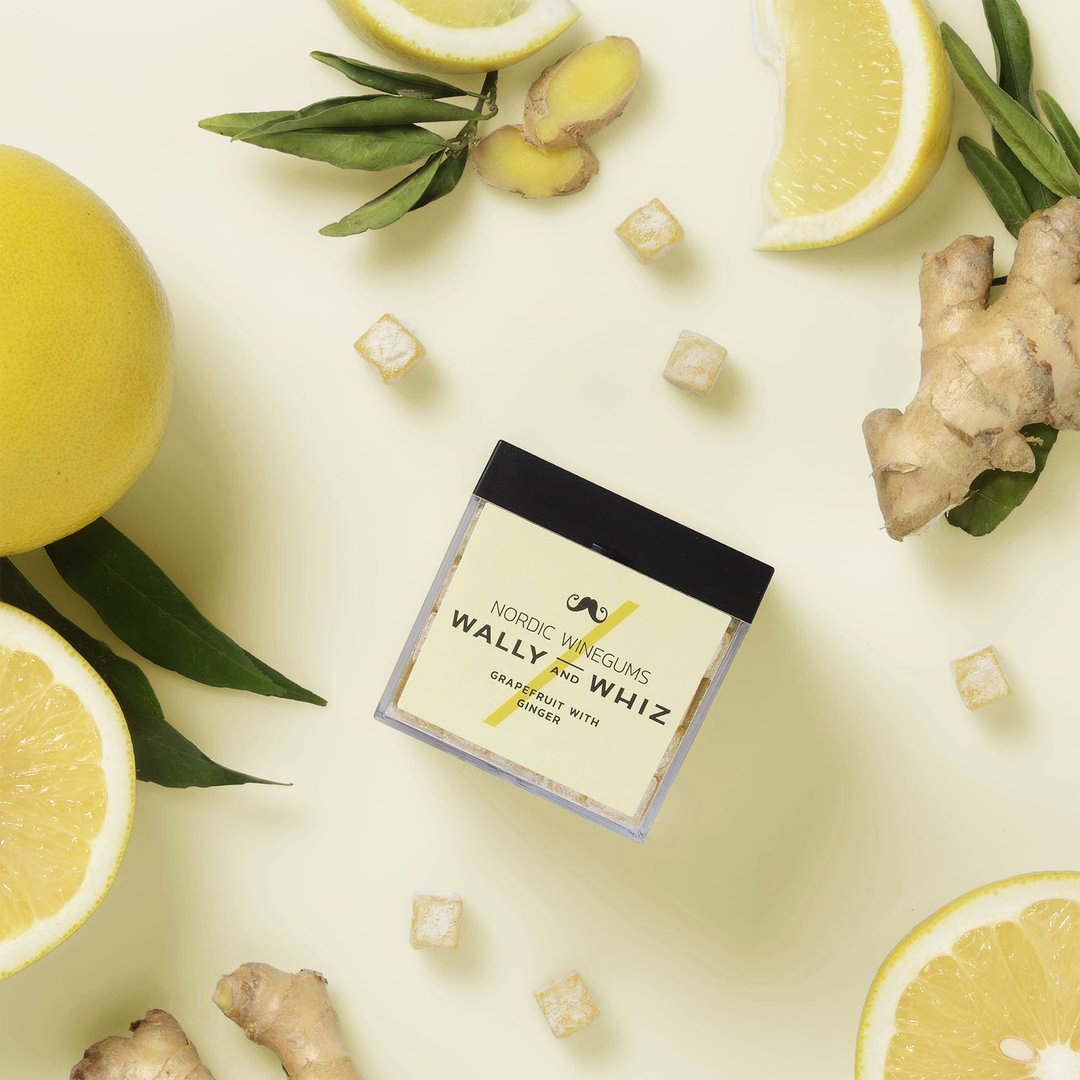
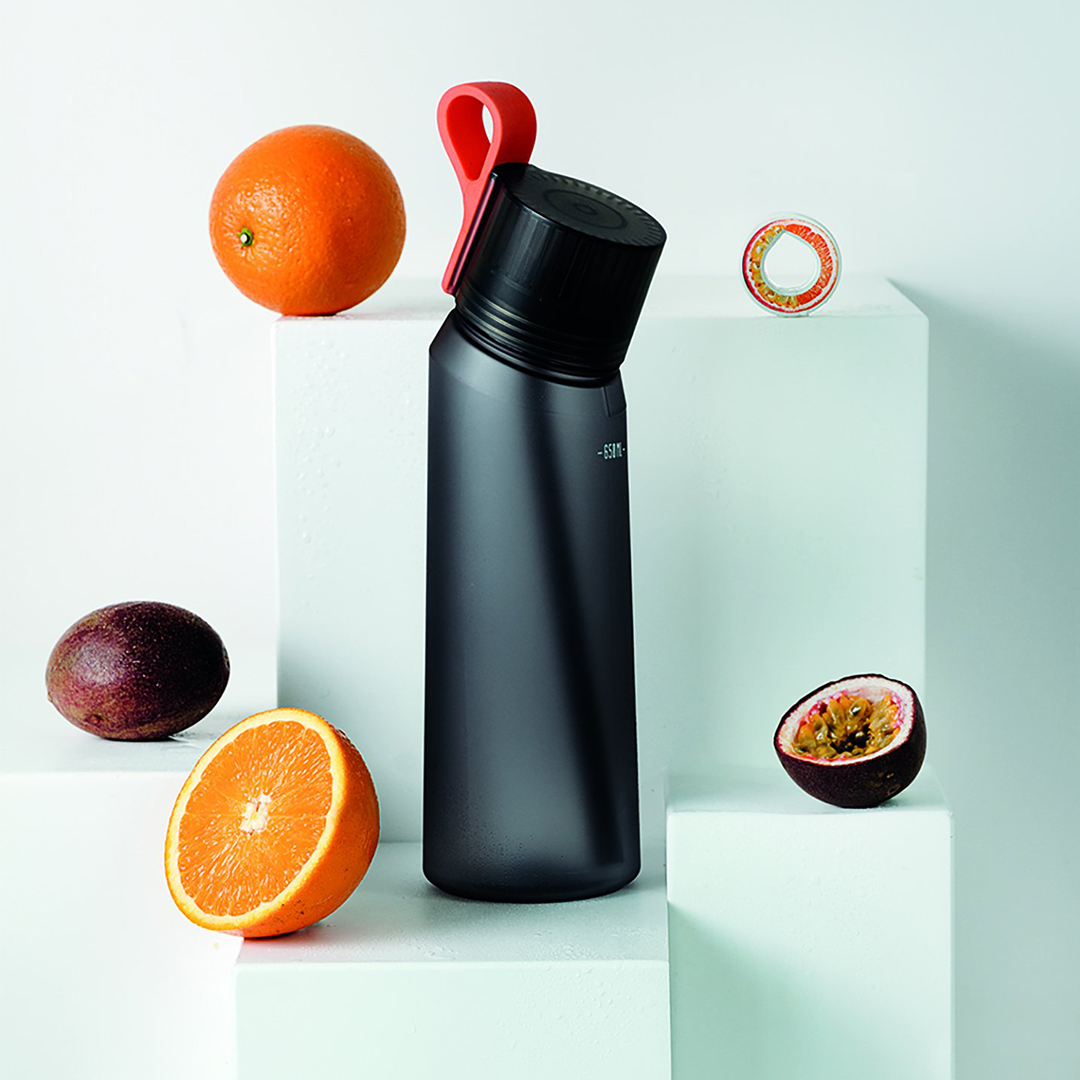
The bathroom is also increasingly developing into a place of retreat where we can escape the stress of everyday life and stop for a moment. According to the internationally acclaimed designer Michael Neumayr, the daily shower is now the only place that gives us “the opportunity to be positively secluded”. In his own work, Neumayr takes inspiration from Buddhism, because “the Buddhist approach allows me to address human needs beyond function and aesthetics”. Taking this as his starting point, Neumayr designed the Aquamoon shower for Dornbracht using symbols associated with female energies: a circle, a chalice, water and the moon. In his opinion, showering is not just about cleaning the body, but also about caressing the soul.
